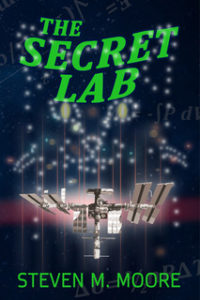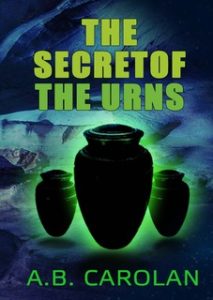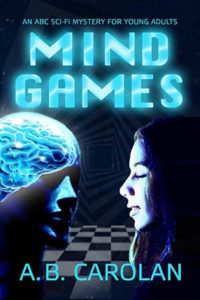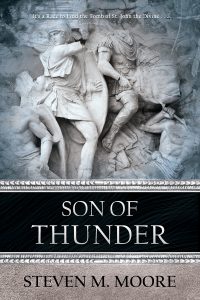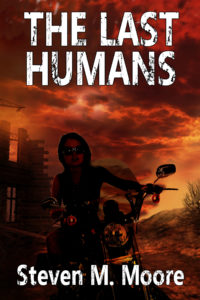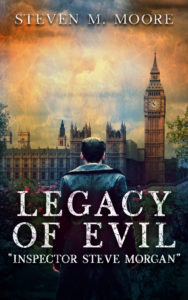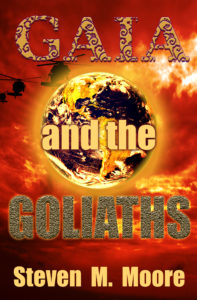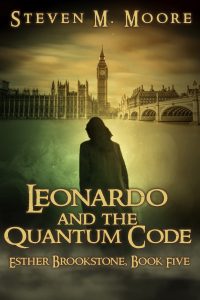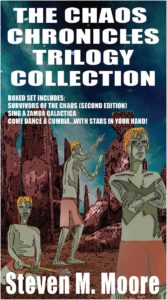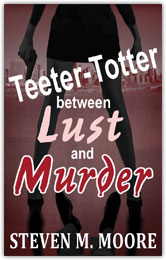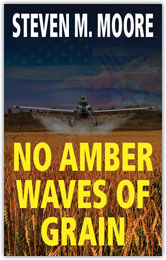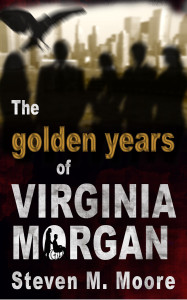Kayla Jones…
December 11th, 2024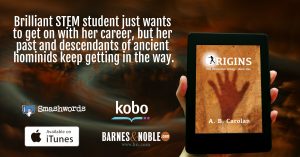 Kayla is the kick-ass young female protagonist in Origins, the first novel of the “Denisovan Trilogy.” AB Carolan hasn’t yet written the other two, but he says he’s working on them. Personally, I think Origins can stand alone as one of the best “ancient civilizations”-type sci-fi mystery and thriller novel, a wonderful, adventurous, and grand mix of fiction, sociology, and archaeology,,,but I’m biased, I suppose. [wink, wink]
Kayla is the kick-ass young female protagonist in Origins, the first novel of the “Denisovan Trilogy.” AB Carolan hasn’t yet written the other two, but he says he’s working on them. Personally, I think Origins can stand alone as one of the best “ancient civilizations”-type sci-fi mystery and thriller novel, a wonderful, adventurous, and grand mix of fiction, sociology, and archaeology,,,but I’m biased, I suppose. [wink, wink]
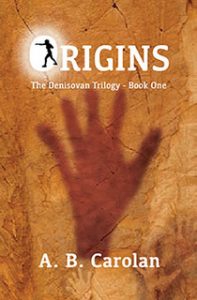 Eons ago on Earth (our real Earth, not a fictional one), different groups of hominids branched off the human evolutionary tree; one recent group discovered is the Denisovans. Carolan embedded these true science facts (not “fake news” or “alternate facts”!) into a new sci-fi universe he created as a way to explain the history of these different groups.
Eons ago on Earth (our real Earth, not a fictional one), different groups of hominids branched off the human evolutionary tree; one recent group discovered is the Denisovans. Carolan embedded these true science facts (not “fake news” or “alternate facts”!) into a new sci-fi universe he created as a way to explain the history of these different groups.
The plan for these novels is quite an ambitious one and requires Carolan to keep up with new archaeological discoveries, but Origins can stand alone very well as a novel that will appeal to young adults (Carolan’s forte) and adults who are young-at-heart. Mysteries, thrills, and lots of action await the reader as Kayla discovers bit by bit how and why she differs from ordinary humans.
Most “modern humans” in our real world have bits and pieces of DNA inherited from Cro-Magnons, Neanderthals, “Hobbits,” and Denisovans. Most of our DNA comes from the first group (AB “explains” this), but some modern humans in differing locales have also inherited some from the other three. Where did all these hominids come from? What happened to them?
AB Carolan provides fictional answers to these questions as he creates a literary roller-coaster ride that puts poor Kayla through the wringer. She must try to stay alive on her way to discovering why she’s being pursued by an evil senator and his violent followers.
The two other novels that are planned are about a more mature Kayla out among the stars, but as I wrote this article I couldn’t help noting how prescient this first novel is relative to our country and the world’s current problems. Unfortunately, our world’s real villains aren’t from the stars: They’re our fellow humans!
This “stand-alone” nature of Origins means, though, less disappointment for readers if they wonder about how Kayla’s adventures continue “out there” among the stars of our galaxy. Some will consider it too much of a teaser, but AB adds the two first chapters of the second novel Allies to this first novel. Did readers complain about not yet knowing the full scope of the second Star Wars movie after the first? (And all those movies are more fantasy than sci-fi, at least not the hard sci-fi thrillers like those planned for the “Denisovan Trilogy.”) You can also mitigate some of your disappointment by writing AB using my contact page at this website to tell him to get his butt in gear and finish the trilogy. He’s usually just having a chinwag in a Donegal pub accompanied by a pint of ale or lager, maybe with a lot of creative world-building going on in his mind, but I can get readers’ messages to the old leprechaun.
All that said, is this novel appropriate for young adults? All of Carolan’s books treat themes adults are concerned about…or should be. Their protagonists just happen to be young girls and women. But both AB and I believe young people should know about all the evil some older people are doing and could avoid doing so these young people don’t repeat our awful and stupid mistakes and can make things better. The “age of youthful innocence” can no longer exist in this complicated world we live in! No amount of book banning can change that. This Denisovan girl Kayla Jones is a hero for our times.
***
Comments are always welcome. (Please follow the rules on the “Join the Conversation” web page.)
Around the world and to the stars! In libris libertas!

